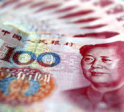What Role for Financial Supervisors in Addressing Systemic Environmental Risk?
By Rens van Tilburg
Financial shocks can originate from ecological imbalances what justifies more careful attention by the financial regulators to this specific risk. A new macroprudential framework is proposed.


.png)


.bmp)
